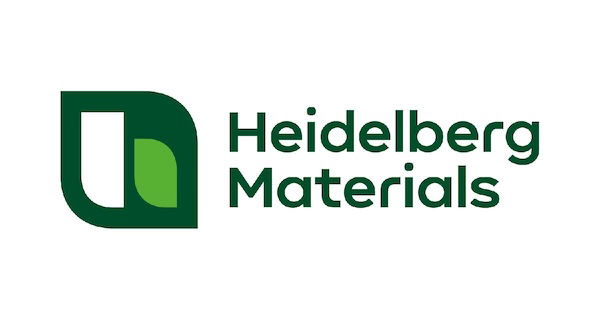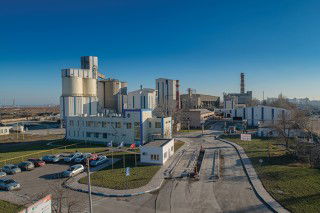Heidelberg Materials has delivered excellent results in the 2Q25, in what the company describes as a "persistently challenging market environment".
The company increased its revenue slightly by EUR177m (US$202m) or three per cent to EUR5683m (previous year: EUR5506m) compared with the YoY quarter. The result from current operations (RCO) climbed significantly by EUR77m or eight per cent to EUR1048m (previous year: EUR971m). The RCOBD margin increased to 24 per cent (previous year: 23 per cent). Earnings per share increased by EUR0.69 to EUR3.85 in 1H25. At EUR2.30bn free cash flow for the last 12 months was at the very high level of the previous period.
Heidelberg Materials says it has also made further progress in the area of sustainability. The share of revenue from sustainable products rose to around 37 per cent, and specific net CO2 emissions fell by around four per cent.
“Next to price adjustments, our strict cost management has proven particularly effective in the second quarter. Our ongoing Transformation Accelerator initiative is fully on track and has helped us to grow our earnings once again with further increasing cost savings,” said Dr Dominik von Achten, chairman of the managing board of Heidelberg Materials. “Even though demand is still volatile in some regions, we expect that stabilisation in our core markets is continuing. Against this backdrop, we confirm our outlook for the 2025 financial year.”
Brevik and beyond
"With the opening of the world's first industrial-scale carbon capture and storage (CCS) facility in the cement industry in Brevik in June, we have impressively underlined our pioneering role on the path to net zero. Thanks to evoZero®, our globally unique carbon captured net-zero cement, our customers can significantly reduce the carbon footprint of their construction projects – benefitting from the same product characteristics as conventional cement. This is a true game changer for our industry,” Dr Von Achten added.
In addition to Brevik, Heidelberg Materials and CBI Ghana Ltd have completed the construction of the world's largest industrial-scale flash calciner for clay in a joint venture. The first batches of calcined clay cement with reduced clinker content have already been delivered to customers.
In July, Heidelberg Materials also started operations at its new industrial pilot plant for enforced carbonation in Górazdze, Poland. This marks the next step in the large-scale implementation of Heidelberg Materials’ patented ReConcrete process, which leverages new potential in the production of sustainable building materials by combining circularity and resource efficiency with decarbonisation.

